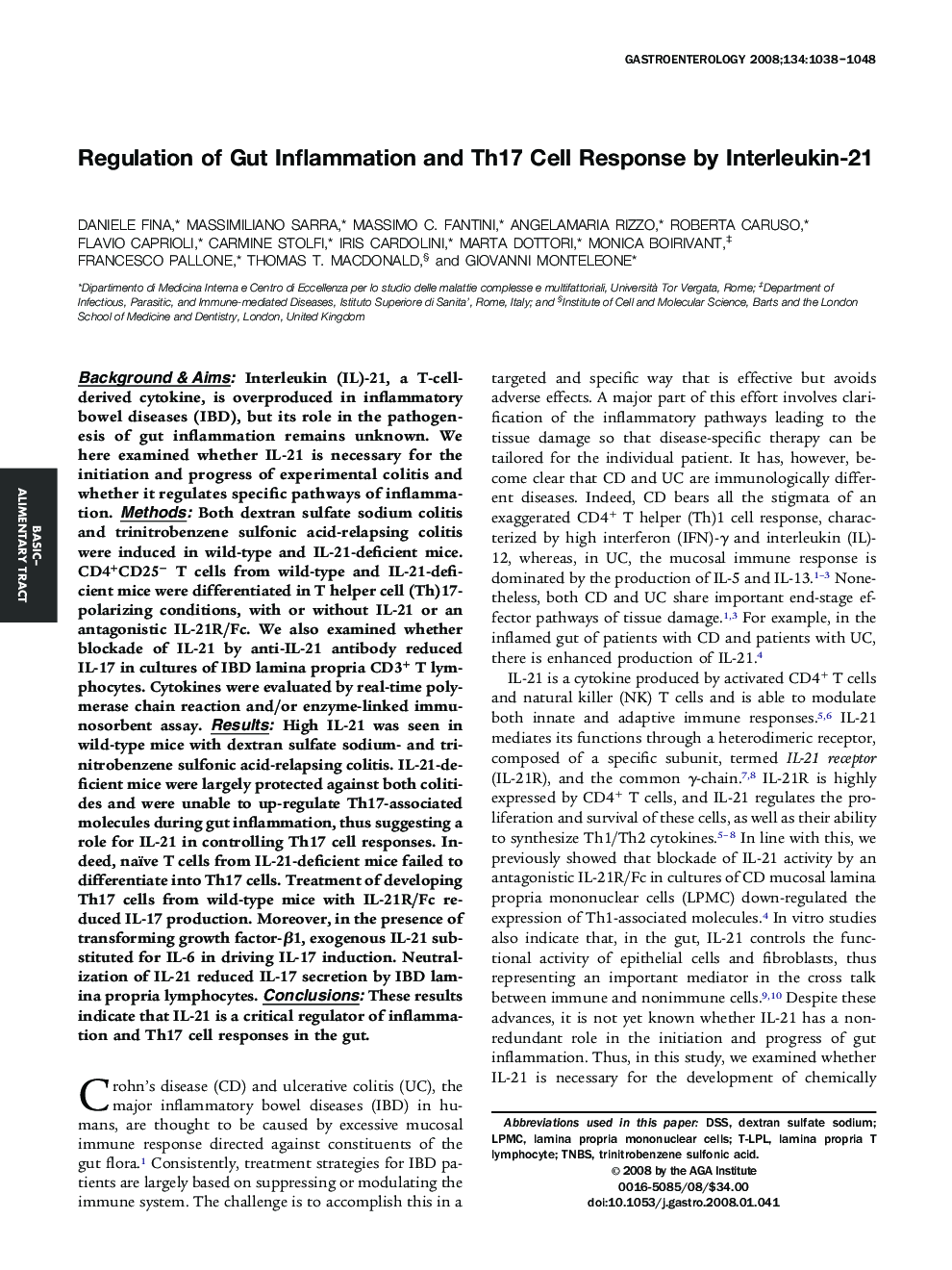| Article ID | Journal | Published Year | Pages | File Type |
|---|---|---|---|---|
| 3295573 | Gastroenterology | 2008 | 13 Pages |
Abstract
Background & Aims: Interleukin (IL)-21, a T-cell-derived cytokine, is overproduced in inflammatory bowel diseases (IBD), but its role in the pathogenesis of gut inflammation remains unknown. We here examined whether IL-21 is necessary for the initiation and progress of experimental colitis and whether it regulates specific pathways of inflammation. Methods: Both dextran sulfate sodium colitis and trinitrobenzene sulfonic acid-relapsing colitis were induced in wild-type and IL-21-deficient mice. CD4+CD25â T cells from wild-type and IL-21-deficient mice were differentiated in T helper cell (Th)17-polarizing conditions, with or without IL-21 or an antagonistic IL-21R/Fc. We also examined whether blockade of IL-21 by anti-IL-21 antibody reduced IL-17 in cultures of IBD lamina propria CD3+ T lymphocytes. Cytokines were evaluated by real-time polymerase chain reaction and/or enzyme-linked immunosorbent assay. Results: High IL-21 was seen in wild-type mice with dextran sulfate sodium- and trinitrobenzene sulfonic acid-relapsing colitis. IL-21-deficient mice were largely protected against both colitides and were unable to up-regulate Th17-associated molecules during gut inflammation, thus suggesting a role for IL-21 in controlling Th17 cell responses. Indeed, naïve T cells from IL-21-deficient mice failed to differentiate into Th17 cells. Treatment of developing Th17 cells from wild-type mice with IL-21R/Fc reduced IL-17 production. Moreover, in the presence of transforming growth factor-β1, exogenous IL-21 substituted for IL-6 in driving IL-17 induction. Neutralization of IL-21 reduced IL-17 secretion by IBD lamina propria lymphocytes. Conclusions: These results indicate that IL-21 is a critical regulator of inflammation and Th17 cell responses in the gut.
Keywords
Related Topics
Health Sciences
Medicine and Dentistry
Gastroenterology
Authors
Daniele Fina, Massimiliano Sarra, Massimo C. Fantini, Angelamaria Rizzo, Roberta Caruso, Flavio Caprioli, Carmine Stolfi, Iris Cardolini, Marta Dottori, Monica Boirivant, Francesco Pallone, Thomas T. MacDonald, Giovanni Monteleone,
